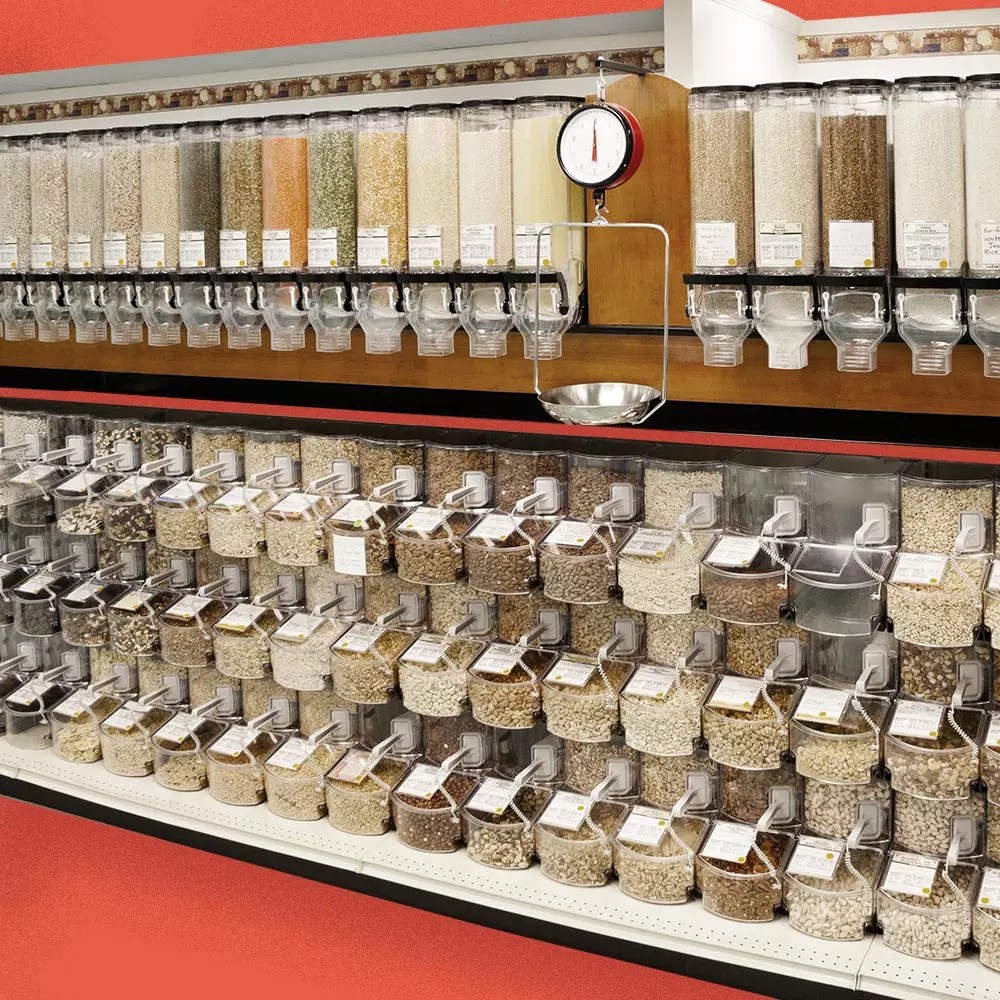

Hero banner custom title
Five good reasons to shop in bulk
2 min
In recent years, bulk products - that is, items that are not pre-packaged and which are sold in units or by weight – have become very popular. Almost non-existent a decade ago, turnover for this category of goods is expected to reach around €1.2 billion in the European Union by the year 2030. Of course, supermarket chains in the United States have long had specific bulk product sections to compete with specialty grocery stores. It’s very good news, both for the planet and for people’s health.
Bulk purchasing reduces food waste
Shoppers find themselves on countless occasions having to buy, for instance, a large pack of tomatoes despite only needing one or two to garnish a dish – with all the rest being condemned to sit in the fridge until they rot and have to be thrown away. For instance, the French waste on average 29 kilos per capita annually, including 7 kilos of items that were never taken out of their packaging.
Bulk purchasing allows people to select the exact quantity of items that they need, thereby reducing waste. Of course, unpackaged products can also be more fragile, meaning they must be handled gently.
Bulk purchasing can end excessive packaging
At a time when the planet is being invaded by plastic waste, bulk purchasing also has the benefit of reducing the need for single-use packaging.
With 13 million tons of plastic ending up in the world’s oceans every year and with 17 million barrels of oil being needed for its production, change is truly needed.
The most organized bulk consumers bring their own containers when they go shopping but otherwise people can also use the paper bags that most chains make available – with France’s ADEME Environment and Energy Management Agency having estimated that bulk sales can cut packaging waste by at least two-thirds.
Getting rid of plastic reduces the ingestion of toxic microparticles…
…and is also good for people’s health. A study carried out in the Netherlands revealed that 77% of all research participants had microplastics in their blood – mainly coming from plastics used to package food and beverages. A WWF publication from 2019 had already discovered that some people are ingesting up to the equivalent of one plastic bank card each and every week. But it is even more shocking to find plastic in people’s bloodstream = without even stopping to worry about the endocrine disruptors contained in certain plastic packages.
Shopping in bulk also saves some money
Bulk purchasing is also financially smart, at least where organic food is concerned. On average, packaging counts for somewhere between 15 and 20% of food sector costs – money that is literally being thrown away. Note that this percentage is likely to increase as well, due to the war in Ukraine and ensuing rise in raw material prices.
Reconnecting with the idea of making things at home
There is nothing better than buying in smaller quantities to encourage a more diverse (hence more balanced) diet. Of course, bulk purchasing also makes it easier for people to test smaller quantities of different items. Having a wide range of beautiful produce in one’s home is a great incentive for staying in and using the kitchen.
Notwithstanding all the positives of bulk purchasing, one caveat does remain, namely that it isn’t enough in and of itself. For instance, if items purchased in bulk have been processed using environmentally damaging methods – and/or come from the other side of the world – all the efforts that bulk purchasers will have made (whether for the planet’s health or their own) will have gone for naught.
Share it:












